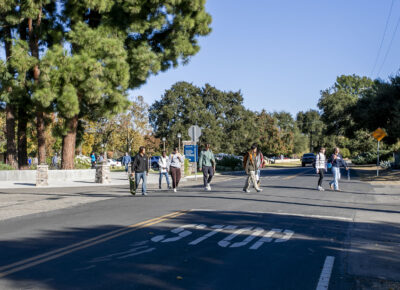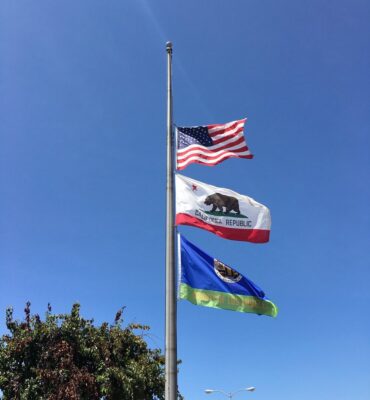A developer with a project just south of Chiquita Canyon Landfill filed a new lawsuit against Waste Connections in July in federal court, claiming the landfill is making life near the landfill “unbearable,” and its parent company structured itself to avoid responsibility.
Lawyers for Sterling Gateway, which owns the Sterling Ranch Estates Project, a 222-home development in Val Verde, are echoing the claims from thousands of residents who have sued the landfill over its underground elevated temperature event.
“This subsurface reaction has caused noxious odors and toxic gases to emanate from the landfill, making living conditions around the landfill unbearable, causing the residents in the surrounding neighborhoods to experience headaches, nosebleeds, respiratory issues, heart problems, and emotional distress, among other harms, which negatively impacts new housing developments,” according to the lawsuit.
A spokesman for Chiquita Canyon Landfill said Thursday in a text message that Waste Connections does not comment on pending litigation. Landfill officials said they have been working “hand-in-glove” with their regulators to remediate the concerns.
Hunt Williams, a representative for Sterling Ranch Estates, did not respond to a phone call seeking comment for this story.
The lawsuit cites statements from Waste Connections, a publicly traded company, to support the plaintiff’s claim that the business is not set up to take care of its closure responsibilities.
“Waste Connections Inc. has held itself out to the public, shareholders and creditors as potentially responsible, through Waste Connections US, for Chiquita Canyon LLC’s and Chiquita Canyon Inc.’s debt,” according to the lawyers for Sterling.
The lawsuit states the problem was first shared with shareholders in a 2023 disclosure.
“’Our accruals for our landfill site closure and post-closure costs may be inadequate,’” the company stated, according to the lawsuit, adding that while it regularly accrues funds for capping and closure, “‘paying additional amounts for closure or post-closure costs and/or for environmental remediation and/or for litigation could harm our financial condition, operating results, or cash flow.’”
The developer, in its lawsuit, alleges that Chiquita’s costs could exceed hundreds of millions of dollars, and that “defendants structured themselves with the deliberate intent that Chiquita Canyon Inc. and Chiquita Canyon LLC be undercapitalized and unable to shoulder these costs, and thereby operate as a shell designed to inequitably and wrongfully insulate Waste Connections from the corresponding liabilities for the benefits it received from these subordinate entities.”
The landfill ceased operations Dec. 31, and ended a local relief fund that was helping residents with relocation funds two months later, claiming the problem was getting better.
The landfill’s regulators publicly disputed these claims, stating the facility’s elevated temperature event, which was burning trash underground at temperatures in excess of 240 degrees and creating an inordinate amount of leachate, was spreading.
“Landfill operators in the state of California are required to provide to state agencies that regulate landfills ‘financial assurance’ that they will be able to pay for the costs of closure of the landfill, post-closure maintenance, and corrective action costs,” according to the lawsuit. “To satisfy this requirement, Chiquita Canyon Inc., not Chiquita Canyon LLC, provided three surety bonds totaling nearly $40 million. Significantly, the cost estimates that form the basis for these bonds budgeted $0 to cover the cost of a subsurface fire or elevated temperature landfill event.”
The developer contends that the landfill’s corporate structure is designed to avoid its responsibility. The lawsuit seeks to make sure the landfill and its corporate parent are treated as one entity under the law.
“To treat Waste Connections, Chiquita Canyon LLC and Chiquita Canyon Inc. as separate corporate entities would permit Waste Connections to continue to shield itself from liability using the corporate form and would unjustly prevent plaintiffs from recovering any or all the damages they are entitled to because the entities whose names appear on the landfill’s operating permits and who have claimed primary responsibility for harms caused by the landfill — Chiquita Canyon LLC and Chiquita Canyon Inc. — are severely undercapitalized and unable to pay for their costs.”
A hearing date for the case was not immediately available.










